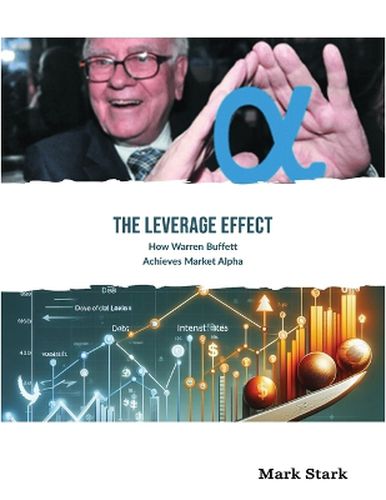Readings Newsletter
Become a Readings Member to make your shopping experience even easier.
Sign in or sign up for free!
You’re not far away from qualifying for FREE standard shipping within Australia
You’ve qualified for FREE standard shipping within Australia
The cart is loading…






This title is printed to order. This book may have been self-published. If so, we cannot guarantee the quality of the content. In the main most books will have gone through the editing process however some may not. We therefore suggest that you be aware of this before ordering this book. If in doubt check either the author or publisher’s details as we are unable to accept any returns unless they are faulty. Please contact us if you have any questions.
Berkshire Hathaway has achieved a Sharpe ratio of 0.76 , surpassing that of any other stock or mutual fund with a track record extending beyond 30 years.
This indicates a substantial alpha relative to conventional risk factors. However, this alpha is rendered non-significant when adjustments are made for the Betting-Against-Beta.
Additionally, it's estimated that Buffett employs an average leverage ratio of approximately 1.6:1.
The success of Buffett's investments seems to stem not from chance or some mystical force but from a strategic blend of leverage use and a preference for undervalued, low-risk, high-quality stocks. Analyzing Berkshire's portfolio by separating the publicly traded stocks from the wholly-owned private enterprises reveals that the former category outperforms, implying that Buffett's impressive returns are more attributable to his stock-picking skills rather than his influence on company management. This insight has significant implications for the understanding of market efficiency and the practical application of academic financial factors.
$9.00 standard shipping within Australia
FREE standard shipping within Australia for orders over $100.00
Express & International shipping calculated at checkout
This title is printed to order. This book may have been self-published. If so, we cannot guarantee the quality of the content. In the main most books will have gone through the editing process however some may not. We therefore suggest that you be aware of this before ordering this book. If in doubt check either the author or publisher’s details as we are unable to accept any returns unless they are faulty. Please contact us if you have any questions.
Berkshire Hathaway has achieved a Sharpe ratio of 0.76 , surpassing that of any other stock or mutual fund with a track record extending beyond 30 years.
This indicates a substantial alpha relative to conventional risk factors. However, this alpha is rendered non-significant when adjustments are made for the Betting-Against-Beta.
Additionally, it's estimated that Buffett employs an average leverage ratio of approximately 1.6:1.
The success of Buffett's investments seems to stem not from chance or some mystical force but from a strategic blend of leverage use and a preference for undervalued, low-risk, high-quality stocks. Analyzing Berkshire's portfolio by separating the publicly traded stocks from the wholly-owned private enterprises reveals that the former category outperforms, implying that Buffett's impressive returns are more attributable to his stock-picking skills rather than his influence on company management. This insight has significant implications for the understanding of market efficiency and the practical application of academic financial factors.